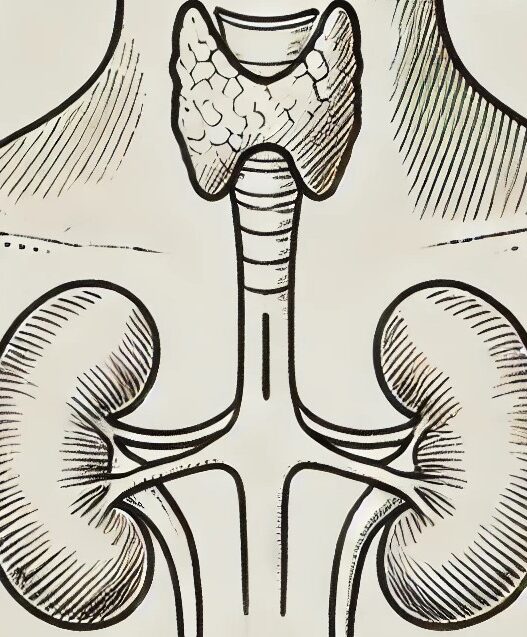Air Quality and Autoimmune Health: Exploring the Crucial Link for Managing Autoimmune Conditions
Air Quality and Autoimmune Health is a crucial topic to explore. The quality of the air we breathe can significantly impact autoimmune conditions and overall well-being. Air quality plays a major role in overall well-being. For those managing autoimmune diseases, the quality of air we breathe is crucial, as toxins and pollutants can increase inflammation and disrupt immune function. In From Pain to Wellness, I dive into the often-overlooked environmental factors, like air quality, that can profoundly impact our health. Prioritizing clean air can be a key step in minimizing symptoms and supporting the journey to wellness.
Air Quality and Autoimmune Health: How Air Quality Impacts Autoimmune Conditions
A recent study examined the link between air pollution and autoimmune diseases. Researchers analyzed medical data from over 81,000 individuals in Italy and found that long-term exposure to air pollution significantly increased the risk of developing immune-mediated diseases. The study highlighted the potential role of environmental factors, like air pollution, in triggering or exacerbating autoimmune conditions.
While outdoor air pollution often makes headlines, indoor air quality can be just as concerning. Studies show that indoor air can sometimes be more polluted than outdoor air, with allergens, chemicals from cleaning products, mold, and even volatile organic compounds (VOCs) from building materials and furnishings. For people with autoimmune conditions, these toxins can strain the immune system, potentially worsening symptoms and triggering flare-ups.
- Inflammation and Immune Response: Poor air quality can activate immune responses and cause inflammation, which is especially harmful for those with autoimmune conditions.
- Respiratory Stress: Pollutants like dust, mold spores, and chemicals in the air can exacerbate respiratory symptoms, further straining the immune system.
- Impact on Gut Health: Airborne toxins may indirectly affect gut health, a vital element in autoimmune wellness, by overburdening the body’s detox pathways.
Signs of Poor Air Quality
Recognizing poor air quality can be tricky, but a few signs may indicate it’s time for an upgrade:
- Frequent Respiratory Symptoms: Coughing, sneezing, itchy eyes, and congestion indoors could signal poor air quality.
- Persistent Fatigue and Headaches: VOCs and mold can lead to “sick building syndrome,” causing fatigue, headaches, and brain fog.
- Worsened Autoimmune Symptoms: Flare-ups may be more frequent if air quality is affecting the immune system.
Steps to Improve Air Quality
- Ventilate Your Living Spaces
- Open Windows Regularly: Allow fresh air to circulate by opening windows for at least 10-15 minutes daily. This can help reduce the concentration of indoor pollutants.
- Use Exhaust Fans: Kitchen and bathroom fans help remove airborne particles and moisture, reducing the risk of mold growth and VOC buildup.
- Invest in High-Quality Air Purifiers
- HEPA Filters: HEPA-filtered air purifiers can capture a large percentage of airborne allergens, dust, and mold spores, creating a cleaner breathing environment.
- Activated Carbon Filters: These filters absorb VOCs and chemicals, which is essential for those sensitive to household pollutants.
- Control Humidity Levels
- Maintain 30-50% Humidity: Keeping humidity in this range discourages mold growth. Using a dehumidifier in damp areas can help, especially in bathrooms, basements, and laundry rooms.
- Choose Natural Cleaning Products and Avoid Scented Sprays
- Go Fragrance-Free: Fragranced air fresheners, sprays, and candles can release chemicals that worsen air quality. Opt for natural alternatives, like essential oils (if tolerated).
- Use Non-Toxic Cleaners: Choose plant-based cleaning products without harsh chemicals to minimize indoor pollution.
- Introduce Indoor Plants with Air-Purifying Qualities
- Plants Like Aloe Vera, Snake Plant, and Spider Plant: These plants are known for their air-purifying qualities and can help remove toxins like formaldehyde and benzene from the air.
Supporting Your Body’s Resilience Against Airborne Toxins
Clean air is crucial, but so is supporting your body’s detox processes:
- Hydrate Consistently: Drinking plenty of water helps your body flush out toxins absorbed through the skin and respiratory system.
- Eat Anti-Inflammatory Foods: Foods high in antioxidants, like berries, leafy greens, and cruciferous vegetables, can help combat the effects of airborne pollutants.
- Practice Deep Breathing and Stress Management: Stress can make the body more reactive to environmental triggers. Integrating deep breathing exercises and stress-reducing practices supports resilience.
Taking Charge of Your Environment for Better Health
Air Quality and Autoimmune Health is a serious topic. Managing autoimmune diseases is a journey that involves making intentional choices to support our bodies. Improving air quality is one of those choices, as it reduces the burden on our immune systems and minimizes triggers. Small changes, like using air purifiers, controlling humidity, and minimizing exposure to chemicals, can have a lasting impact on autoimmune health. In From Pain to Wellness, I emphasize that wellness is about lifestyle changes—taking charge of the air we breathe is an empowering step toward a healthier, more balanced life.
Remember, healing from autoimmune diseases is a marathon, not a sprint. With every positive step, like improving air quality, you’re making strides toward a life of wellness and vitality.




















